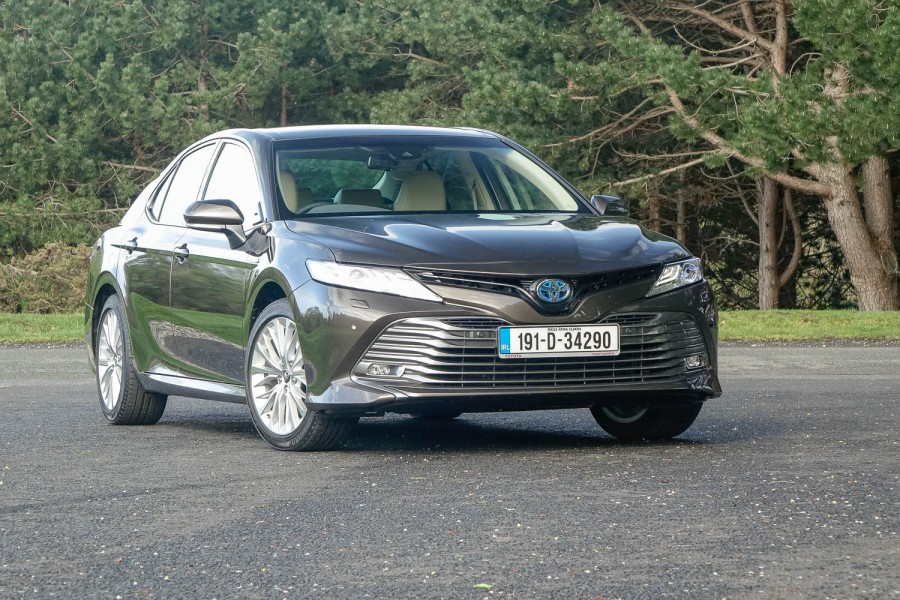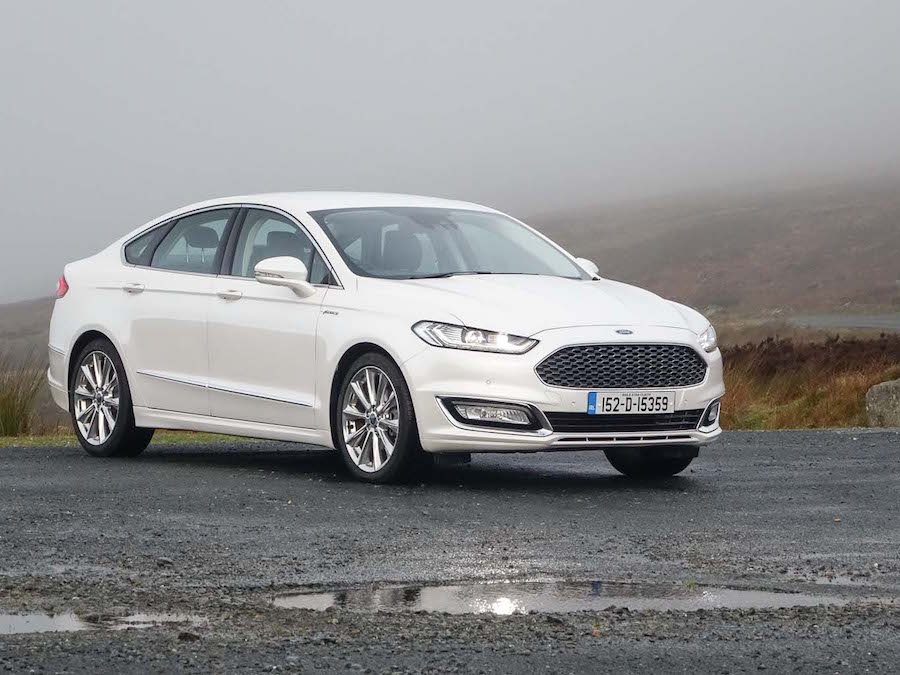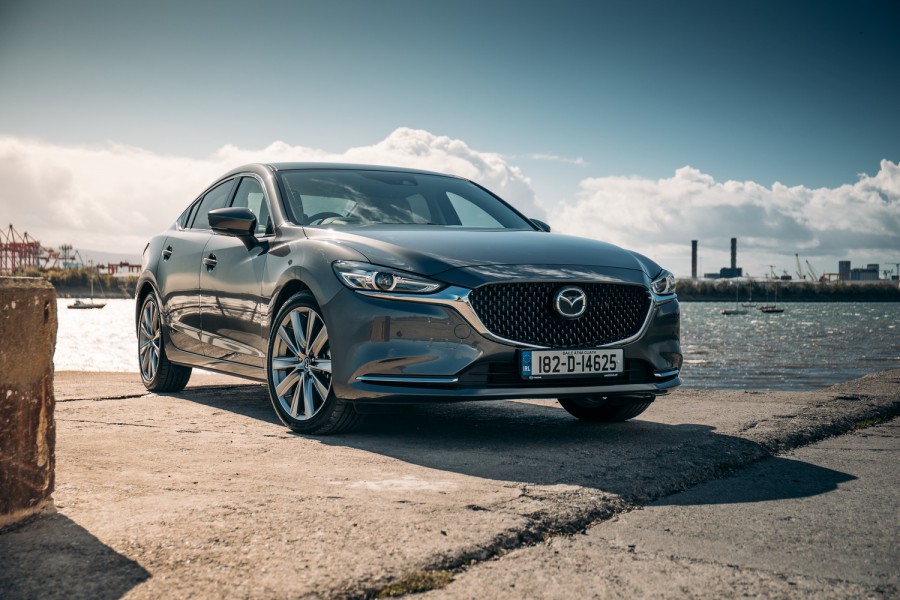What are you driving?
For the first time in 15 years, I'm driving a Toyota Camry. Well, not quite the first - we did sneak over to San Francisco last year to take a test drive in a US-spec Camry, an amuse bouche of what Ireland could expect, but this is our first chance since 2004 to drive a new Camry on Irish roads.
Since it left these shores, the Camry has gone from success to success. Once the preserve of the Garda traffic corps and special branch, the Camry has become the best-selling four-door saloon in the world. No mean achievement that, especially in a world that seems to be increasingly shunning the charms of a traditional four-door. The Camry's return to Ireland is to tempt customers who are missing the discontinued Avensis saloon, but for whom neither the smaller Corolla saloon, nor the RAV4 SUV appeal.
It's closely related to both the Corolla and the RAV4, though, sharing the same 'Toyota New Generation Architecture' (TNGA) chassis, and it also shares a 2.5-litre hybrid-assist petrol engine with both the RAV4 and the more expensive (but broadly conceptually similar) Lexus ES 300h.
Prices for the Camry start from a relatively hefty €39,750 - at the top end for mass-market rivals such as the Ford Mondeo and Skoda Superb, but significantly better value than you'd get from one of the German premium brands. Think the Camry can't compete with them? Think again - its quality (and likely reliability) easily trumps anything from Stuttgart or Munich.
Standard kit includes pre-collision braking with pedestrian detection, adaptive cruise control, lane departure warning, LED headlights, the 'Toyota Touch' infotainment system, a rear-view camera, dual-zone climate control and wood trim. Our Platinum-spec test car costs €42,950, and adds 18-inch alloys, full LED lights, blind spot monitor, 'Tiger Eye' wood trim, heated leather seats and wireless phone charging.
Name its best bits
Driving the Camry is a bit like rolling around in your favourite sofa. The front seats aren't quite as sumptuous as those offered in the mechanically-related Lexus ES, but even after more than 1,000km behind the wheel, we weren't complaining. The cabin, thanks to a stretchy 2.8-metre wheelbase, is hugely spacious, and this is one of the few four-door saloons that actually offers proper seating for five people - the middle rear seat isn't the proletarian perch that you normally get.
Refinement is excellent. There's a touch too much tyre noise on coarse tarmac, but the hybrid powertrain is remarkably hushed. Even with the CVT transmission, there's less of the high-rev racket that you usually get from hybrids when you ask for full power. It does happen, of course, but the 2.5-litre four-cylinder engine is so well isolated, noise wise, that if you've got the radio on, you'll hardly even notice.
It's no-one's idea of a performance car, but it's reasonably brisk with an 8.3-second 0-100km/h time. You can switch it into Sport mode, but to be honest it feels barely any more responsive than when in the default Eco mode, so don't bother. Fuel economy is pretty good, though. Toyota quotes 5.5 litres per 100km (on the tougher WLTP economy cycle) and we got 6.2 litres per 100km overall, which is impressive for such a big car, and one that we largely drove on hybrid-unfriendly motorways.
Just as it's no performance car, it's also no sports car. Show it a twisty road and the Camry responds with well-weighted steering and a sense of sure-footedness, but it's not a fun car to drive. Satisfying, when you get it into its long-haul groove, but not one for sparkling Sunday morning back-road drives. Ride comfort is excellent though, even on the optional 18-inch wheels fitted to our test car.
The best bit, though, is the quality. The sheer heft of the fit and finish is truly impressive, and you can just tell that it's built to last, to a far higher degree, than any rival.
Anything that bugs you?
The cabin might be well built, but there's a distinctly 1990s vibe to the look of the dash, with lots of big buttons and a teeny-tiny infotainment screen. The software that the screen uses also manages to look out of date, and is fiddly to use. Oh, and the stereo is a bit tinny and needs better bass control.
And why have you given it this rating?
The Toyota Camry's not perfect and, given that the Corolla, which uses the same basic chassis, is so good to drive, it might have been reasonable to expect a more engaging driving experience. But what the Camry is, is hugely satisfying. It is supremely relaxing to drive, it's economical, it's refined and well-equipped, and it has the kind of quality that you suspect will see it out-last the Rock of Gibraltar. Yes, it really was worth the 15-year wait. Welcome home, old friend.




























